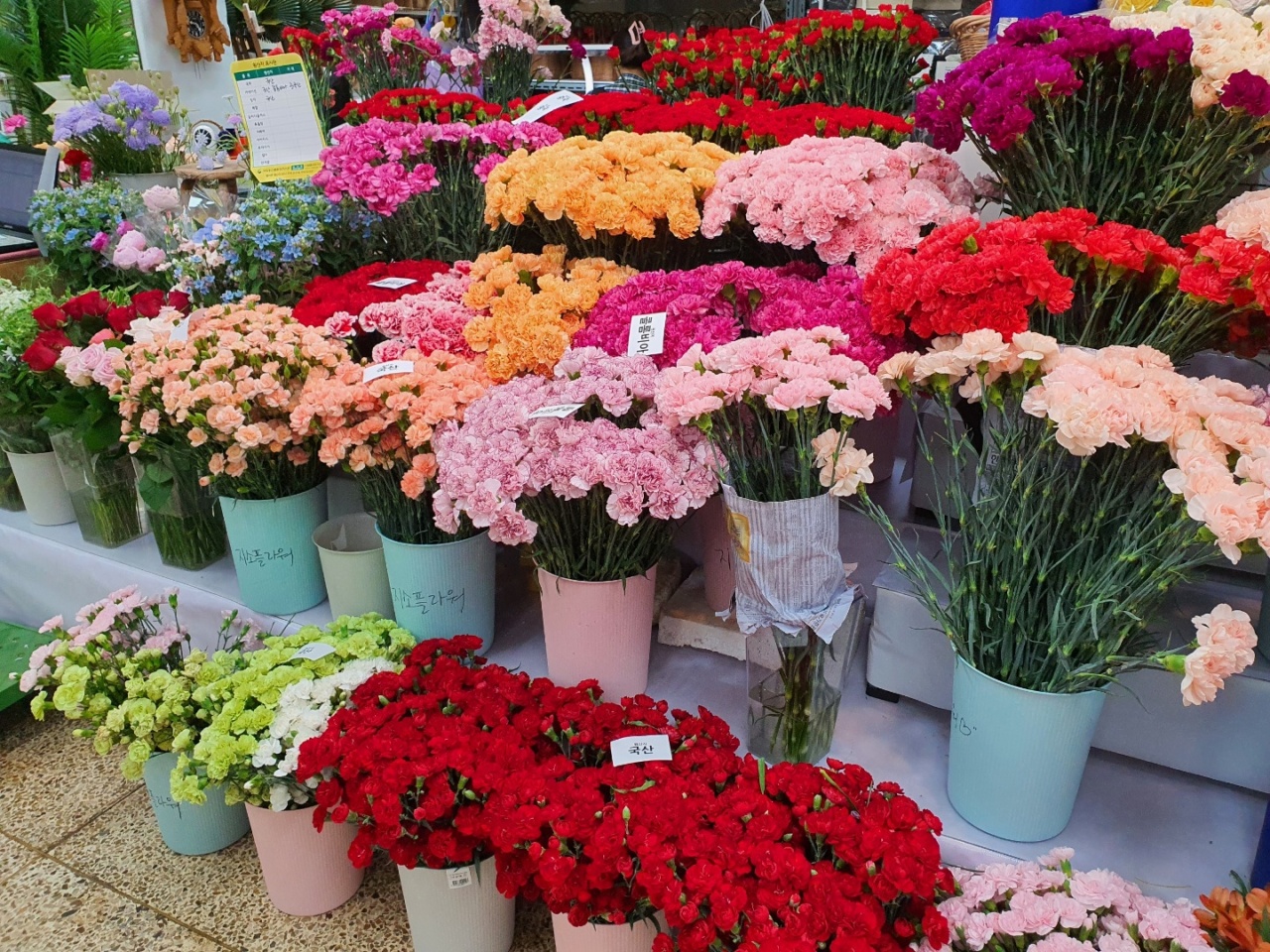 |
Carnations are on sale at Yangjae Flower Market Center in Seocho-gu, southern Seoul. (Yangjae Flower Market Center) |
Parents’ Day in South Korea falls on May 8, a day that is usually celebrated with the family. One may have a family gathering to catch up with each other and express gratitude to their parents.
To get the freshest cuts of carnations, the flowers that are typically presented to parents, head to Yangjae Flower Market Center in Seocho-gu, southern Seoul, which is the largest wholesale flower market in Seoul that houses a total of 430 shops. It is located near the Yangjae Citizen Forest Station, which is about a 2-minute ride from Yangjae Subway Station.
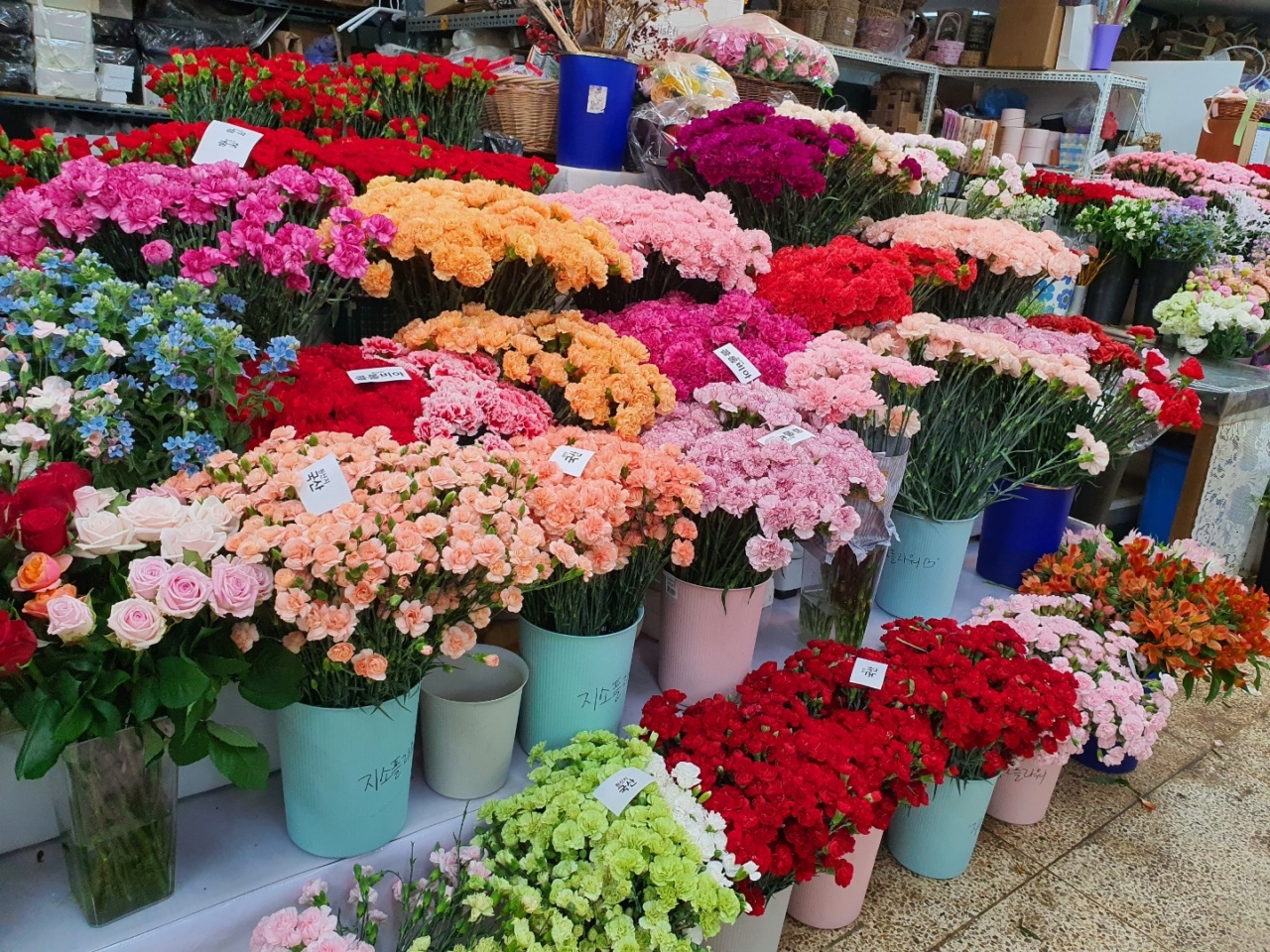 |
Carnations are on sale at Yangjae Flower Market Center in Seocho-gu, southern Seoul. (Yangjae Flower Market Center) |
Once you enter the building, there are 220 shops selling cut flowers. You may be overwhelmed by the scent from flowers and the variety of flowers that come into sight.
“Carnations with pastel pink and orange colors are popular this year,” an official from the market center told The Korea Herald, adding that the price of flowers has increased 20 percent from last year due to the rise in demand for flowers imported from Europe and the strong euro. A bundle of carnations of about 20 stems costs around 9,300 won on average this year. Parents’ Day was initially celebrated as Mother’s Day starting in 1956, but the name was changed to Parents’ Day in 1973.
Carnations are also presented to teachers on Teachers’ Day on May 15.
Trot concert at Afreeca Colosseum
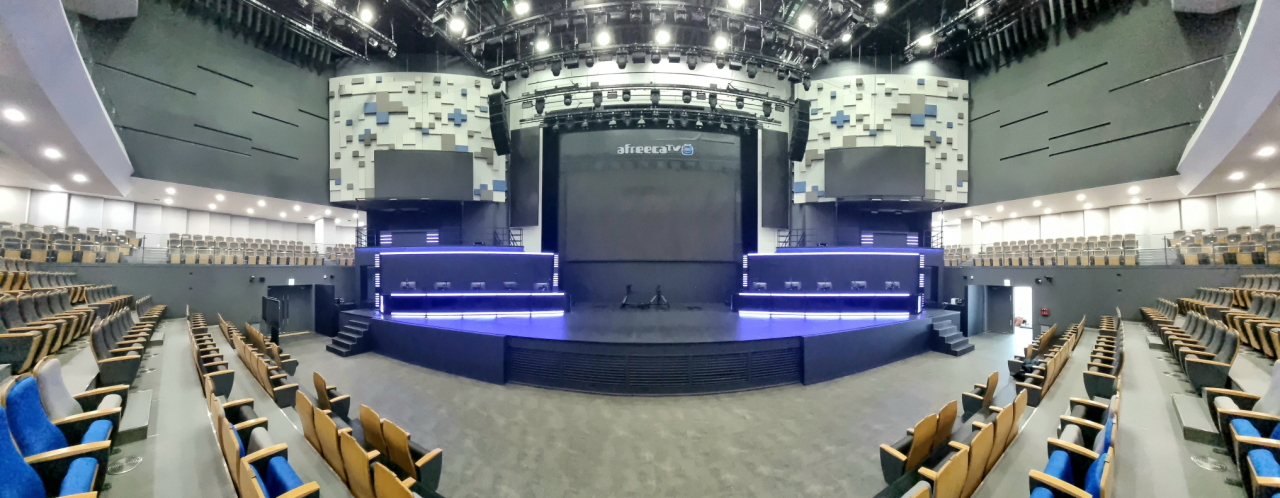 |
The interior view of Afreeca Colosseum in Mapo-gu, western Seoul. (Afreeca TV) |
If you are looking for a unique experience of enjoying the oldest style of Korean pop, locally known as “trot,” visit the Afreeca Colosseum in Mapo-gu, western Seoul.
A 15-minute walk from Digital Media City Station Exit No. 9 on the Incheon Airport Railroad Express line, Afreeca Colosseum, which is home to local esports matches with some 700 seats, has been turned into a stage for a trot concert.
Celebrating the family month of May, including Parent’s Day on May 8 and Day of Married Couples on May 21, Korean video streaming platform AfreecaTV is holding a trot concert titled “Trot Week” on Sunday.
The concert will feature special performances by several trot singers who caught the viewers’ attention on popular trot competition programs, including MBN’s “Voice Trot” winner Park Se-wook, Duri of TV Chosun’s “Miss Trot,” Huh Chan-mi of “Miss Trot 2” and Jang Hye-ri of MBN’s “Hello Trot.”
AfreecaTV’s four popular music livestreamers, known as “broadcast jockeys,” will co-star in the concert.
Starting at 6 p.m., “Trot Week” is scheduled to run for two hours as an online-offline hybrid concert.
The ticket for the offline event costs 10,000 won and can be purchased at AfreecaTV’s official e-commerce platform Shopfreeca. All proceeds will be donated to the people in vulnerable social groups.
Aztec exhibition dispels myths
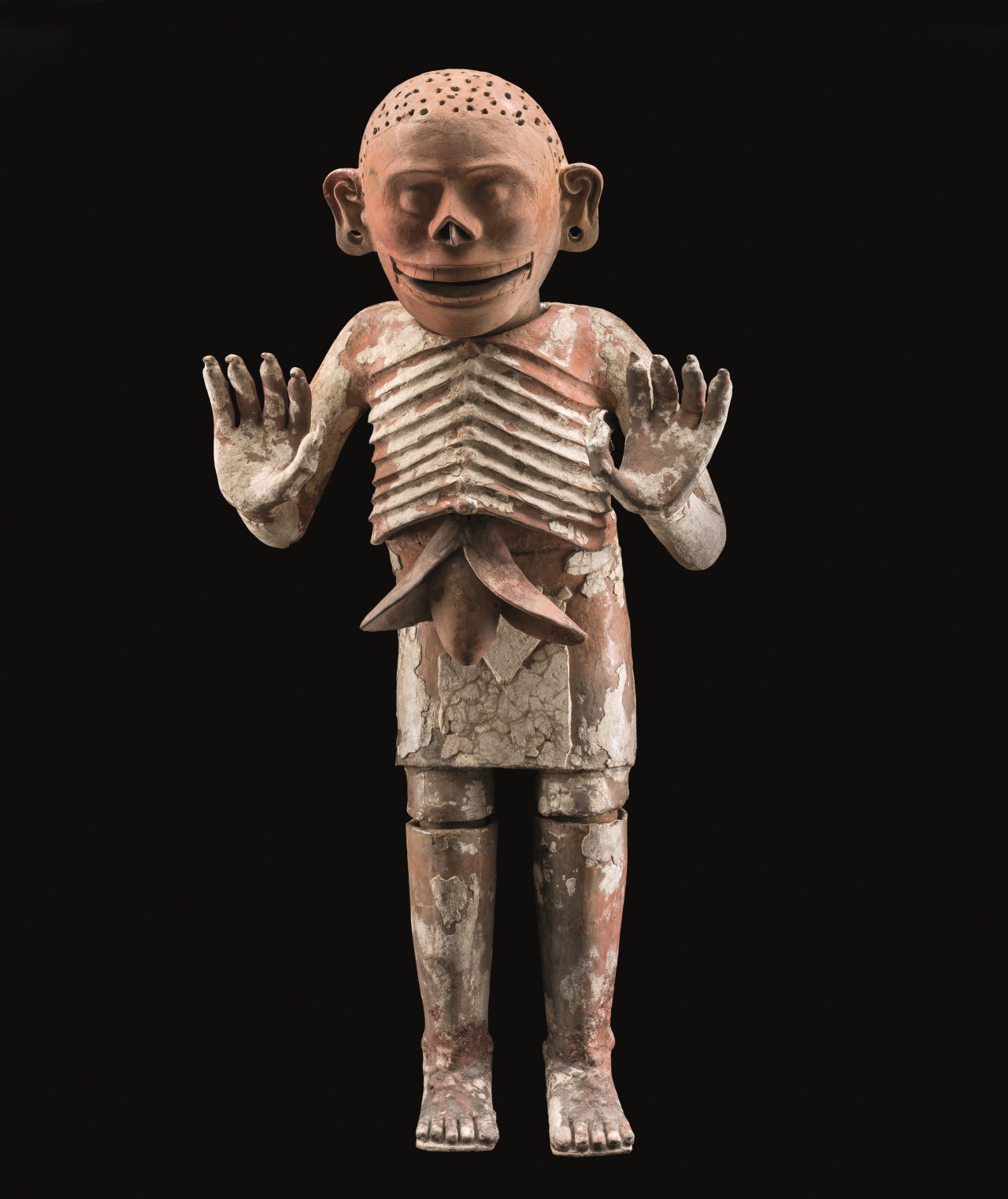 |
Mictlantecuhtli, the Lord of the Underworld, from Museo del Templo Mayor, Mexico City (NMK) |
When imagining the Aztec empire, the indigenous culture of Mexico and a major civilization of the American continent, the most commonly pictured scenes for many are those of brutal wars and human sacrificial rites.
A visit to the National Museum of Korea will dispel such prejudices, inviting the visitors to view the history and culture of the Aztecs from a different perspective.
Marking the 60th anniversary of diplomatic relations between Korea and Mexico, “Aztecs,” a special exhibition on the Aztec civilization, is running at the NMK in Yongsan-gu, Seoul, through Aug. 28.
The exhibit features some 208 artifacts of the Aztec empire from 11 museums across Mexico and Europe.
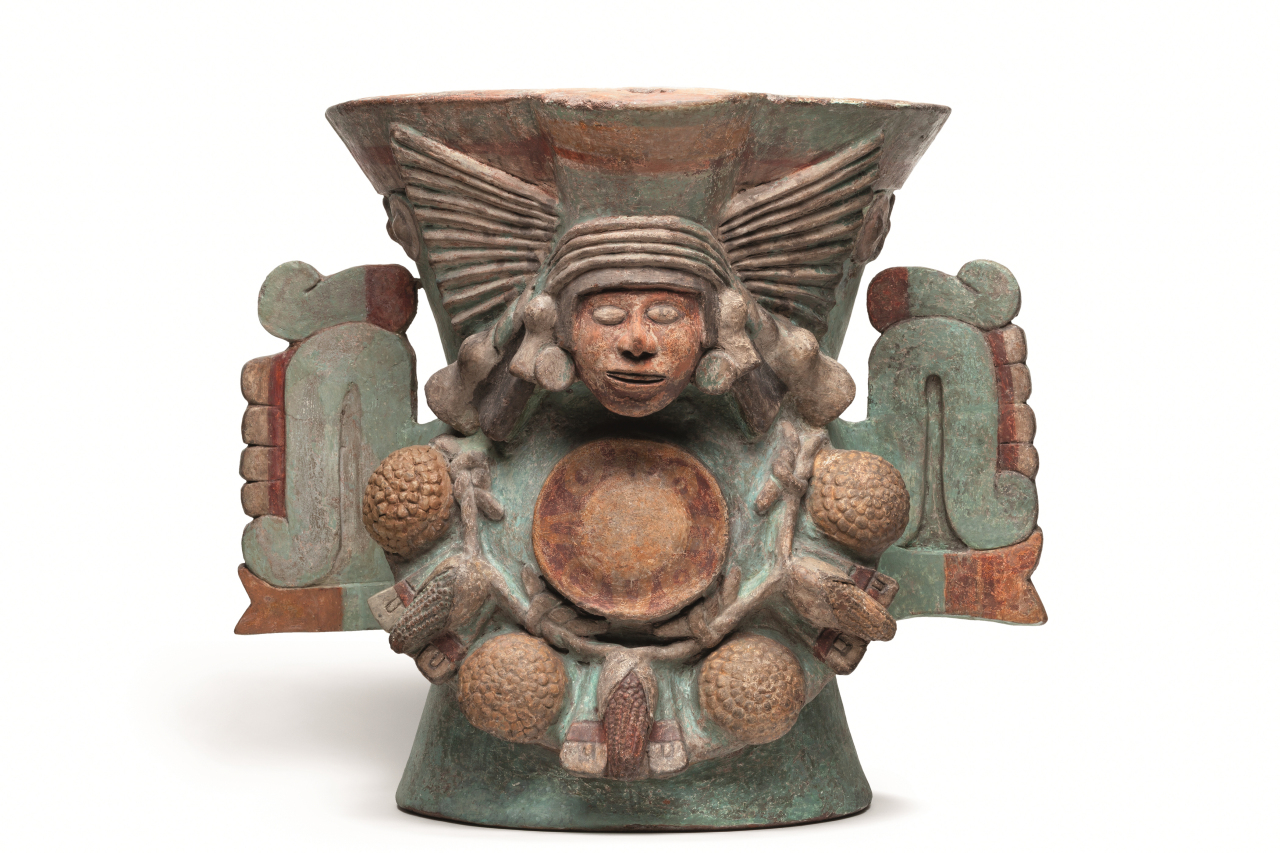 |
Brazier in the Shape of Chalchiuhtlicue, the Goddess of Water and Fertility, from Museo Nacional de Antropologia, Mexico City (NMK) |
Recent researches have revealed that the long-held images of violence are rooted in the distorted stories conjured by European conquerors, who used historical narratives to justify their invasion of the American continent.
In addition to showing the Aztec artifacts, some of the finest sculptural works are reimagined through video materials. A 3D version of the Aztec Sun Stone is on display, and a digital mapping video of Templo Mayor will help the visitors deepen their understanding of the arts and history of the empire.
“Aztecs” is open 10 a.m. to 6 p.m. daily, with extended hours on Wednesdays and Saturdays when the museum closes at 9 p.m.
(
yunapark@heraldcorp.com)
(
sj_lee@heraldcorp.com)
(
hykim@heraldcorp.com)
By Korea Herald (
khnews@heraldcorp.com)












![[Today’s K-pop] Blackpink’s Jennie, Lisa invited to Coachella as solo acts](http://res.heraldm.com/phpwas/restmb_idxmake.php?idx=644&simg=/content/image/2024/11/21/20241121050099_0.jpg)